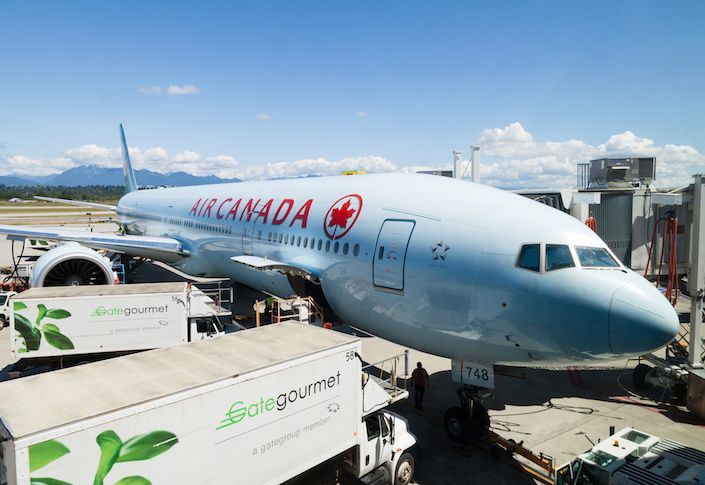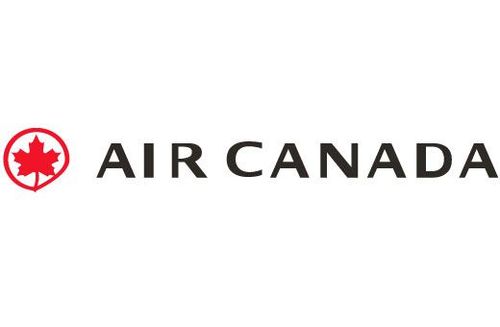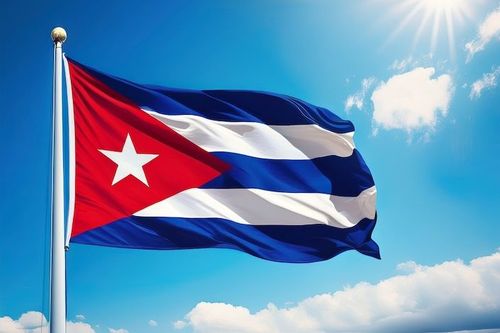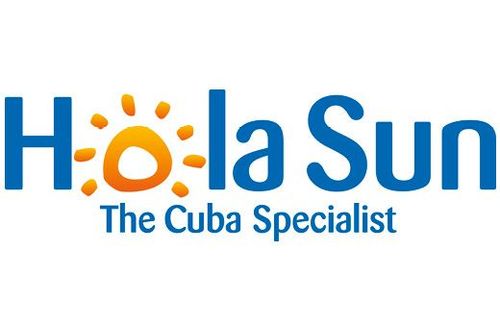Where travel agents earn, learn and save!
News / Air Canada reports first quarter 2021 results
Air Canada reveals operating revenue of $729 million

May 7 - Air Canada today reported first quarter 2021 financial results:
• Operating revenues of $729 million, a decline of $2.993 billion or 80 per cent from the first quarter of 2020
• Negative EBITDA (1) (earnings before interest, taxes, depreciation and amortization), excluding special items, of $763 million compared to EBITDA of $71 million in the same quarter of 2020
• Operating loss of $1.049 billion compared to an operating loss of $433 million in the first quarter of 2020
• Net cash burn of $1.274 billion, or approximately $14 million per day, on average
• Unrestricted liquidity amounted to $6.582 billion at March 31, 2021
In 2020, Air Canada implemented a COVID-19 Mitigation and Recovery Plan in response to the negative impacts of the COVID-19 pandemic on its earnings and cash from operations. The measures taken in 2020 are described in the “Strategy and COVID-19 Mitigation and Recovery Plan” section of Air Canada’s 2020 MD&A. In 2021, to date, Air Canada has taken the following additional measures:
Customer Service and Safety
Since March 2020, Air Canada has refunded more than $1.2 billion to customers holding refundable tickets. In April 2021, Air Canada started offering eligible customers who purchased non-refundable tickets for travel on or after February 1, 2020 but did not fly, the option to obtain a refund to the original form of payment. Such customer refunds will be neutral to Air Canada's liquidity position and will improve its net working capital with proceeds drawn under the refunds credit facility from the Government of Canada. Additional details on the refunds credit facility are provided in the "Recent Developments" section of Air Canada's First Quarter 2021 MD&A.
In January 2021, Air Canada received the Diamond Certification from the Airline Passenger Experience Association (APEX) Health Safety powered by SimpliFlying. The Diamond Certification recognized the airline for achieving hospital-grade levels of biosecurity across multiple passenger touchpoints. The certification program aims to create a global standard for health and safety measures focused on airline customers.
In March 2021, Air Canada announced several updates for Aeroplan Elite Status members, ensuring their status remains in effect, to give them flexibility and certainty. The changes include the extension of current Elite Status until the end of 2022, in addition to a previous extension through 2021, as well as the possibility to accelerate their status qualification, which will also help contribute to status qualification for 2022 and beyond.
In March 2021, Aeroplan announced its partnership with Starbucks which allows Aeroplan members to earn Aeroplan points at participating Starbucks locations across Canada. In 2021, Aeroplan intends to introduce additional program features, while expanding its partnership network in various categories, to further grow and engage its membership base.
Capacity and Route Network
In the first quarter of 2021, as a result of the continued impact of the COVID-19 pandemic, Air Canada reduced its ASM capacity by 82 per cent compared to the first quarter of 2020 (or a reduction of 84 per cent when compared to the first quarter of 2019). Air Canada plans to approximately double its second quarter 2021 ASM capacity from the same quarter in 2020. When compared to the same period in 2019, second quarter 2021 ASM capacity is expected to decrease 84 per cent.
On March 1, 2021, Air Canada consolidated its regional flying with Jazz Aviation LP (Jazz). Through the amended CPA, which is effective on a retroactive basis to January 1, 2021, Jazz has become the sole operator of flights under the Air Canada Express banner. As further explained in the news release dated March 1, 2021, Air Canada transferred the operations of its Embraer 175 aircraft to Jazz and expects to realize $400 million in cost reductions over the term of the 15-year amended capacity purchase agreement.
Since March 2020, Air Canada has operated more than 7,500 all-cargo flights using its wide-body passenger aircraft as well as certain temporarily modified Boeing 777 and Airbus A330 aircraft, which have additional available cargo space due to the removal of seats from the passenger cabin. In the first quarter of 2021, a total of 2,362 all-cargo flights were operated.
Financing and Liquidity
Since the start of 2021, Air Canada concluded the following transactions:• On April 12, 2021, Air Canada entered into a series of debt and equity financing agreements with the Government of Canada (acting through its subsidiary, Canada Enterprise Emergency Funding Corporation) which allows Air Canada to access up to $5.879 billion in liquidity through the Large Employer Emergency Financing Facility (LEEFF) program. The financial package provides for fully repayable loans that Air Canada would draw down if and as required. The package also includes an equity investment for gross proceeds of $500 million for Air Canada shares at a price of $23.1793 per share, as well as an aggregate of 14,576,564 warrants exercisable for the purchase of an equal number of Air Canada shares, subject to customary adjustments, at a price of $27.2698 per share during a 10-year term; 50 per cent of the warrants vested concurrently with the implementation of the credit facilities and the remaining 50 per cent of the warrants will vest on a proportional basis to the amounts that Air Canada may draw under the unsecured credit facilities (excluding the refunds credit facility). Additional details on the agreements are provided in the “Recent Developments” section of Air Canada’s First Quarter 2021 MD&A
• In March 2021, Air Canada concluded a committed secured facility totaling US$475 million to finance the purchase of the next 15 Airbus A220 aircraft scheduled for delivery in 2021 and 2022
• In connection with Air Canada’s December 2020 share offering, in January 2021, the underwriters partially exercised their over-allotment option to purchase an additional 2,587,000 Air Canada shares for net proceeds of $60 million
• In the first quarter of 2021, Air Canada extended its US$600 million and $200 million revolving credit facilities by one year, to April 2024 and to December 2023, respectively
As part of Air Canada’s ongoing efforts to maintain adequate liquidity levels, additional financing arrangements continue to be assessed and may be pursued.
First Quarter Summary
Air Canada recorded a net loss of $1.304 billion or $3.90 per diluted share in the first quarter of 2021 compared to a net loss of $1.049 billion or $4.00 per diluted share in the first quarter of 2020.
In the first quarter of 2021, on a capacity reduction of 82 per cent, operating expenses of $1.778 billion decreased $2.377 billion or 57 per cent from the same quarter in 2020.
In the first quarter of 2021, net cash flows used in operating activities of $888 million deteriorated by $868 million from the same quarter in 2020 on lower operating results, reflecting the continued impacts of the COVID-19 pandemic and related travel restrictions.
In the first quarter of 2021, net cash burn of $1.274 billion, or approximately $14 million per day, on average, was lower than management’s expectations of between $15 to $17 million per day, on average, discussed in Air Canada’s February 12, 2021 news release. Air Canada’s net cash burn in the first quarter of 2021 included $2 million per day in net capital expenditures and $4 million per day in lease and debt service costs. The lower net cash burn versus what was previously anticipated was attributable to a combination of higher than anticipated operating earnings, favourable timing on working capital, and deferred settlement of aircraft lease returns.
Outlook
As indicated above, Air Canada plans to approximately double its second quarter 2021 ASM capacity from the same quarter in 2020. In the second quarter of 2021, when compared to the same period in 2019, ASM capacity is expected to decrease 84 per cent. The airline will continue to dynamically adjust capacity and take other measures as required to account for health warnings, travel restrictions, border closures globally and passenger demand.
Air Canada projects a net cash burn of between $1.180 billion and $1.370 billion (or between $13 million and $15 million per day, on average) in the second quarter of 2021. This net cash burn projection includes $2 million per day in capital expenditures, net of financing, and $5 million per day in lease and debt service costs. When compared to the first quarter of 2021, the second quarter of 2021 includes approximately $1 million per day in higher scheduled debt principal repayments, an increase in end-of-lease payments due to more aircraft being returned to lessors and reflects the continuing impact of the pandemic on travel demand. The net cash burn projection excludes the amount of expected eligible refunds of non-refundable fares being processed pursuant to the change in refund policy announced on April 12, 2021 for flights impacted by the COVID-19 pandemic. Such refunds will be eligible for draws under the Government of Canada $1.404 billion refunds credit facility. As such, these refunds will generally be cash neutral to Air Canada’s liquidity position, up to the $1.404 billion limit of the facility. Air Canada estimates that the maximum exposure to cash refunds for all eligible customers holding non-refundable tickets is approximately $2 billion. It is difficult to predict the number of customers who will request a cash refund for non-refundable tickets but based on past experience and current observations since the change in refund policy on April 12, 2021, Air Canada expects cash refunds relating to the change in policy on April 12, 2021 to be substantially less than $2 billion as certain customers will choose to retain their travel voucher.
More Travel News:
Americans ready to start traveling again
Airline Quality Rating
Paradise is back! Royalton Saint Lucia is reopening on May 28
Vaccinations revive International travel











